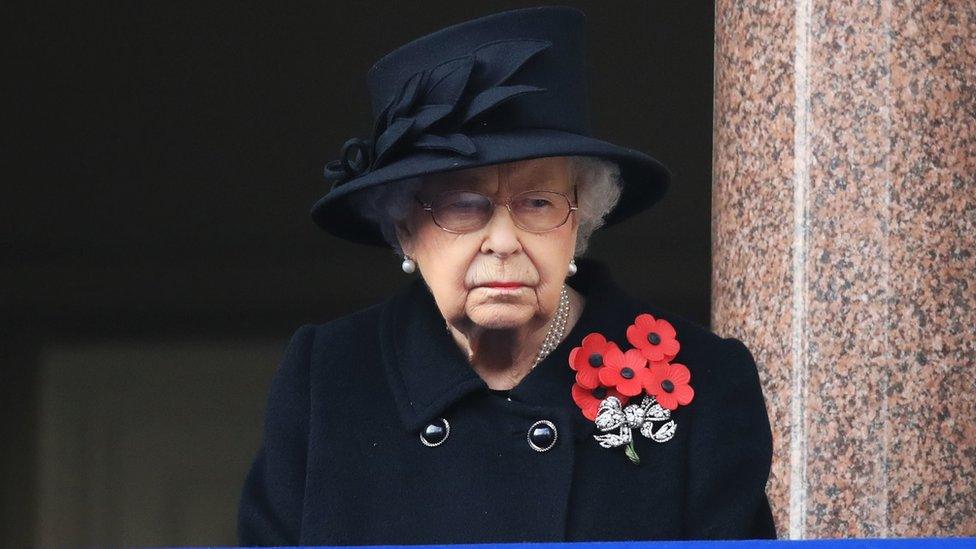Remembrance Sunday: Queen to attend Cenotaph service
- Published
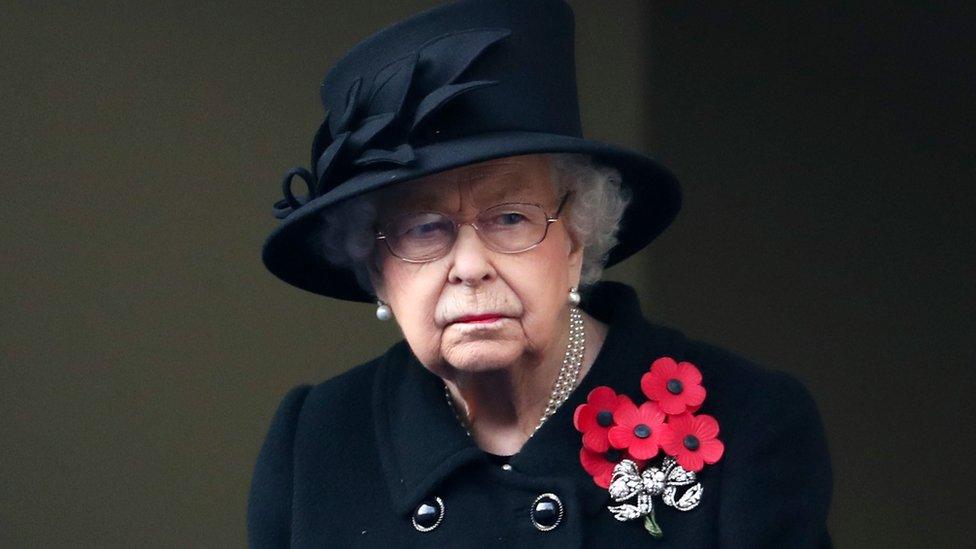
The Queen will attend the annual Remembrance Sunday service at the Cenotaph later after taking time away from her duties for health reasons.
The 95-year-old monarch has been resting after spending a night in hospital in October.
The event will see the return of pre-pandemic numbers of veterans, military personnel and onlookers.
The prime minister will join members of the royal family in laying a wreath at the war memorial in central London.
The National Service of Remembrance in Whitehall, which commemorates the war dead, was closed to the public last year, with limited numbers of veterans and military personnel taking part.
This year will see a return to normal, with hundreds of servicemen and women marching and lining up around the Cenotaph. A large crowd is expected to watch.
A national two-minute silence will be held at 11:00 GMT to remember those who fought and died in past conflicts, with similar ceremonies taking place at war memorials across the country.
Buckingham Palace said it was the Queen's "firm intention" to attend the wreath-laying service after she missed several other events, including the Festival of Remembrance at the Royal Albert Hall on Saturday.
The monarch, who lived through World War Two as a teenager, is head of the armed forces.
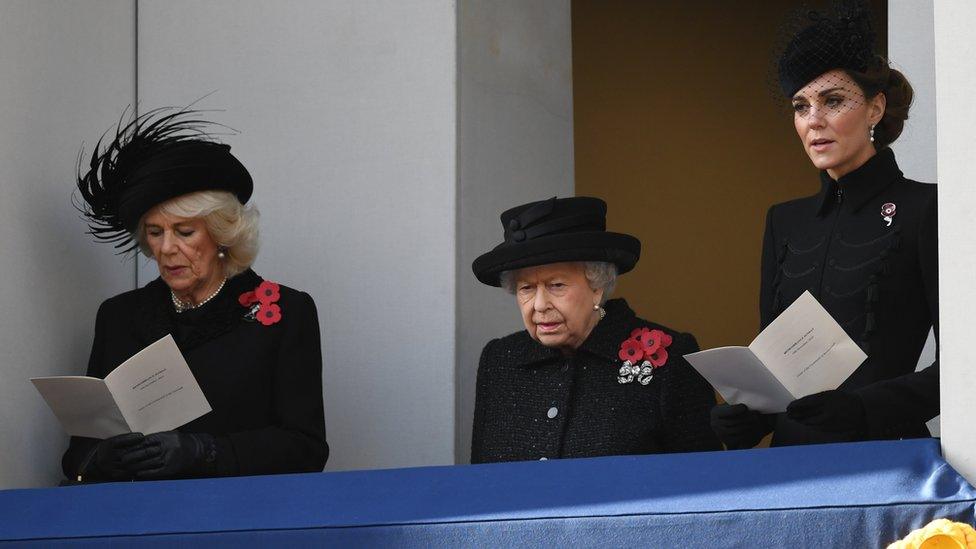
The Queen is expected to watch the service from the balcony of a government building, as she has in previous years including 2019 (pictured here)
The Prince of Wales will lay a wreath on the top step of the Cenotaph on the Queen's behalf while she watches from the balcony of a government building, as in previous years.
Prince Charles, who celebrates his 73rd birthday on Sunday, has placed the wreath on behalf of his mother since 2017.
Senior politicians will also lay wreaths, including Boris Johnson and Labour leader Sir Keir Starmer.
Mr Johnson said it was a moment to "come together to remember those who sacrificed everything in service of our country".
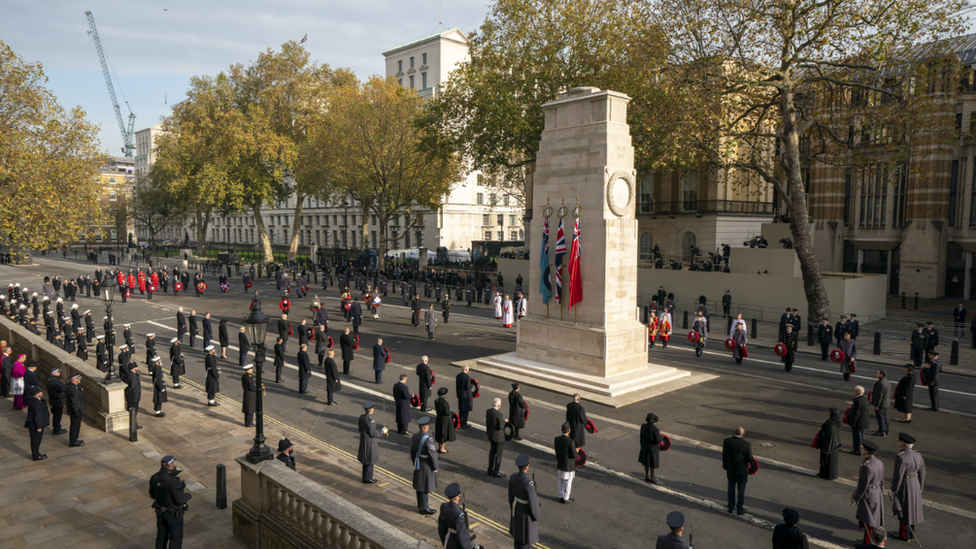
Last year saw a scaled-back service due to the coronavirus pandemic
Sir Keir said it was "a time for us all to stop, reflect and remember those millions of people from Britain and the Commonwealth who have kept us safe through their service and sacrifice".
Another to lay a wreath will be Chief of the Defence Staff General Sir Nick Carter, who said those who died did so "to protect the free and open way of life that we enjoy today".
David Atkin, who served as a senior aircraftman in the Royal Air Force Regiment, said: "It's probably even more poignant this year because I know a lot of people, especially from the RAF Regiment Association, who should have been marching there last year and are no longer with us, so they're not able to march this year, so we're doing it for them as well."
Stefan Godfree, who served in the Royal Artillery for 17 years, said many veterans had been "upset that last year was scaled back, but we understood why".
He added: "It was strange that there was none of the usual outpouring of loss as the Cenotaph event was very watered down".
Armed forces charity the Royal British Legion, which holds its Poppy Appeal in the run up to Remembrance Sunday each year, said this year's march would include hundreds of young people from the Cadets, Guides and Scouts.
The organisation said it was "vital the torch of Remembrance is passed to younger generations".
Also marching will be 21 LGBT+ veterans, including the first transgender officer to serve openly in the British Armed Forces.
Caroline Paige, who served in the Royal Air Force for 35 years as a navigator on fast jets and battlefield helicopters, said it would be a proud and emotional moment.
"It will be fantastic to see all the veterans together marching for the first time, bearing in mind that many of them were dismissed from the service, and it's just so nice to see them as part of the military family," she said.
Remembrance Sunday: The Cenotaph will be on BBC One from 10:15 GMT on Sunday.

NADIYA HUSSAIN'S CLASSIC COMFORT FOOD: From a warming beef curry to custard French toast...
CRAMPS, LOW MOOD AND CRAVINGS?: The best things to eat on your period and when

Related topics
- Published14 November 2021
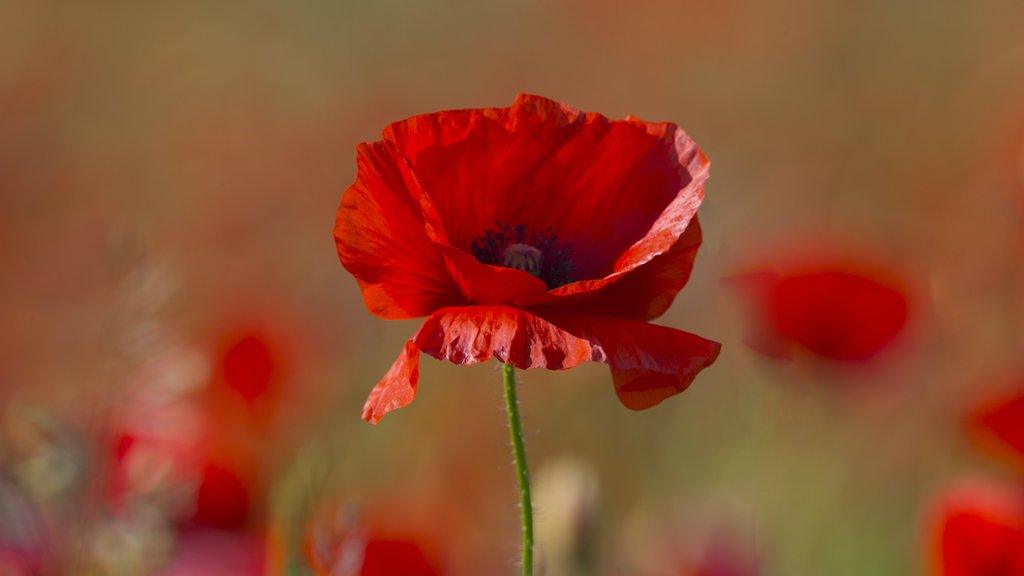
- Published11 November 2021
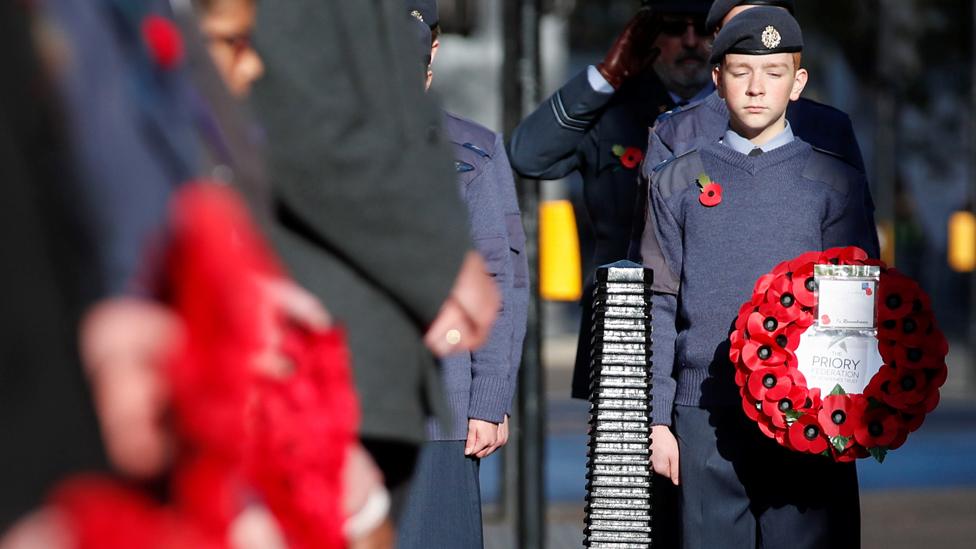
- Published8 November 2020
